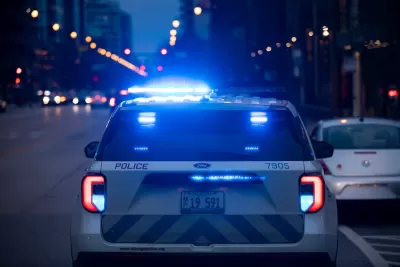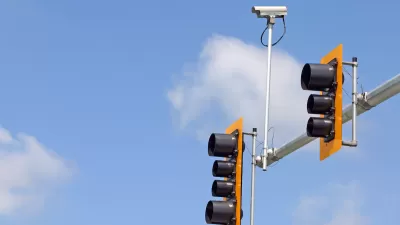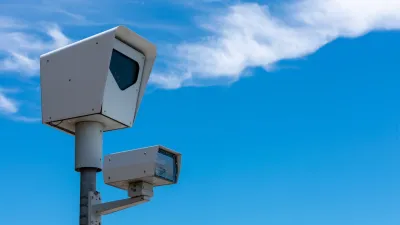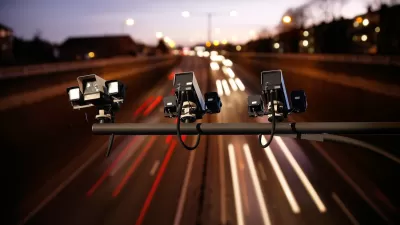The city’s automated traffic enforcement cameras are issuing tickets at rates more aligned with the community’s racial makeup — unlike human police officers, according to a new analysis.

A study of Chicago’s controversial speed cameras indicates that they issue citations more equitably than human police officers. “Cameras can detect dangerous moving violations, such as serious speeding and running red lights, without the need for immediate police involvement. Automated enforcement alone won’t guarantee safe streets, but cameras have reduced fatal and serious injury crashes substantially where deployed, including in Chicago.”
Research by Wenfei Xu, David Levinson, Michael J. Smart, and Nebiyou Yonas Tilahun reveals that “when speed cameras are doing the ticketing, the proportion of tickets issued to Black and white drivers aligns closely with their respective share of roadway users. With human enforcement, in contrast, police officers stop Black drivers at a rate that far outstrips their presence on the road.” In areas of Chicago where half of drivers are Black, they account for 70 percent of police stops.
Using automated traffic enforcement can be one step toward more equitable policing. In Illinois, lawmakers are proposing to ban traffic stops “solely based on noncriminal and minor offenses such as improper vehicle registration, seat belt violations or lane usage mistakes,” while Berkeley is considering the use of trained civilians for routine traffic enforcement — similar to parking enforcement in most cities — to reduce the risk of interactions with armed law enforcement.
FULL STORY: Police stop more Black drivers, while speed cameras issue unbiased tickets − new study from Chicago

Planetizen Federal Action Tracker
A weekly monitor of how Trump’s orders and actions are impacting planners and planning in America.

Congressman Proposes Bill to Rename DC Metro “Trump Train”
The Make Autorail Great Again Act would withhold federal funding to the system until the Washington Metropolitan Area Transit Authority (WMATA), rebrands as the Washington Metropolitan Authority for Greater Access (WMAGA).

The Simple Legislative Tool Transforming Vacant Downtowns
In California, Michigan and Georgia, an easy win is bringing dollars — and delight — back to city centers.

Albuquerque’s Microtransit: A Planner’s Answer to Food Access Gaps
New microtransit vans in Albuquerque aim to close food access gaps by linking low-income areas to grocery stores, cutting travel times by 30 percent and offering planners a scalable model for equity-focused transit.

This City Will Pay You to Meet Your Neighbors
A North Kansas City grant program offers up to $400 for residents to throw neighborhood block parties.

Commentary: Our Silence Will Not Protect Us
Keeping our heads down and our language inoffensive is not the right response to the times we’re in. Solidarity and courage is.
Urban Design for Planners 1: Software Tools
This six-course series explores essential urban design concepts using open source software and equips planners with the tools they need to participate fully in the urban design process.
Planning for Universal Design
Learn the tools for implementing Universal Design in planning regulations.
Smith Gee Studio
City of Charlotte
City of Camden Redevelopment Agency
City of Astoria
Transportation Research & Education Center (TREC) at Portland State University
US High Speed Rail Association
City of Camden Redevelopment Agency
Municipality of Princeton (NJ)





























